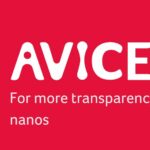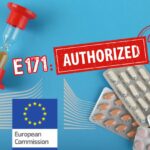
Our demands

Our demands
Because of the health and environmental risks associated with nanomaterials, there is an urgent need for action, as large quantities of nanomaterials are released into the environment and mixed with the several hundred thousand synthetic chemicals already present.
To avoid repeating the mistakes of the past, it is necessary to ensure:
- A better knowledge of the nature and volume of nanomaterials placed on the market (via the improvement of the r-nano register in France and the registration of nanomaterials at the European level),
- research efforts on the risks of nanomaterials (with a financial contribution from companies that produce and use nanomaterials),
- information and training activities (for health professionals as well as public and private decision-makers),
- and concrete measures of prevention and precaution: mandatory evaluations of nanomaterials before their commercialization; authorization of only certain nanomaterials for the specific and essential uses for which the benefit/risk balance proves favorable.
Action 13 of the National Health and Environment Plan (PNSE 4) published in 2021 is in line with this, but there is much to do with little time and money.
Everyone has a role to play: residents, consumers, researchers, associations, unions, public authorities, companies, media, etc. AVICENN does its part…
Our demands – general documents
- the open letter that AVICENN sent mid-March 2023 to the European Commission, co-signed by 16 other NGOs, about our product tests and the need to inform and protect citizens from the risks related to nanomaterials
- the 3 sets of demands for more knowledge, transparency and vigilance, listed at the end of our report Searching for nanos in everyday products published in December 2022
- the 20 proposals from civil society concerning the reduction of exposure to nanomaterials compiled in June 2019 by AVICENN as part of the preparation of the 4th national health and environment plan (PNSE 4)
- shorter and easier to read, our mini-comics drawn by Géraldine Grammon, published in 2017
- our eleven proposals compiled between 2015 and 2017 by AVICENN, in partnership with its associate and other civil society members as well as members of risk assessment and management bodies within the framework of the nanomaterials labeling/restriction working groups led by the Ministry of the Environment
- the open letter we sent to the government in July 2017, along with CIEL, FNE, ORGECO 54, APE, WECF, C2DS and CIEAS.
- our book “Nanomateriaux et risques pour la santé et l’environnement – Soyons vigilants !” published in 2016.
Our demands – documents on more specific issues
- the open letter sent in February 2022 to the European Commission by AVICENN and fourteen other NGOs to ask for clarification and improvement of its definition of the term “nanomaterials“
- the letter sent in October 2021 to the Minister of Ecological Transition, Barbara Pompili, with a view to capitalize on the French presidency of the European Union in order to intensify transparency and vigilance on nanomaterials and their associated risks
- the contribution of AVICENN posted in June 2021 within the framework of the European consultation on the definition of the term “nanomaterial“
- the answer of AVICENN sent in June 2020 to the consultation of the European Commission on its roadmap presenting the new sustainable strategy in the field of chemicals (“Chemical strategy for sustainability”)
- the intervention of AVICENN “Registration and evaluation of nanomaterials in REACH: What assessment? What challenges to be met?” carried out at the Economic, Social and Environmental Council (EESC) on October 3, 2019 as part of the referral: “Risk management: what assessment can be made of REACH in relation to the initial ambitions?”
Upcoming Nano Agenda
23
Juil.
2025

23rd International conference on Advanced Nanomaterials (ANM, University of Aveiro – Portugal)
Aveiro
Conference
- Scientific conference
- 23rd International conference on Advanced Nanomaterials
- From July 23 to July 25, 2025
- Website: www.advanced-nanomaterials-conference.com
1
Août
2025

Controlling the risks associated with nanomaterials (CEA, Online)
On line
Training
- E-learning program: awareness-raising for personnel who come into contact with nanomaterials during research, formulation, production, maintenance, cleaning, upkeep, etc., as well as safety coordinators or engineers, facility managers, heads of laboratories where nanoparticles are handled.
- Organizers: INSTN Grenoble (CEA)
- On the program:
- 1 – Introduction, definition and characteristics of nanomaterials
- 2 – Toxicity of nanomaterials: the state of knowledge
- 3 – Metrology and characterization of nanomaterials
- 4 – Prevention and protection against nanomaterials in the workplace
- 5 – Quiz: assessment of learning outcomes
- The 2-hour course can be viewed for one month from the date of registration.
- Website: https://instn.cea.fr/…risques-lies-aux-nanomateriaux…
1
Sep.
2025

Controlling the risks associated with nanomaterials (CEA, Online)
On line
Training
- E-learning program: awareness-raising for personnel who come into contact with nanomaterials during research, formulation, production, maintenance, cleaning, upkeep, etc., as well as safety coordinators or engineers, facility managers, heads of laboratories where nanoparticles are handled.
- Organizers: INSTN Grenoble (CEA)
- On the program:
- 1 – Introduction, definition and characteristics of nanomaterials
- 2 – Toxicity of nanomaterials: the state of knowledge
- 3 – Metrology and characterization of nanomaterials
- 4 – Prevention and protection against nanomaterials in the workplace
- 5 – Quiz: assessment of learning outcomes
- The 2-hour course can be viewed for one month from the date of registration.
- Website: https://instn.cea.fr/…risques-lies-aux-nanomateriaux…






